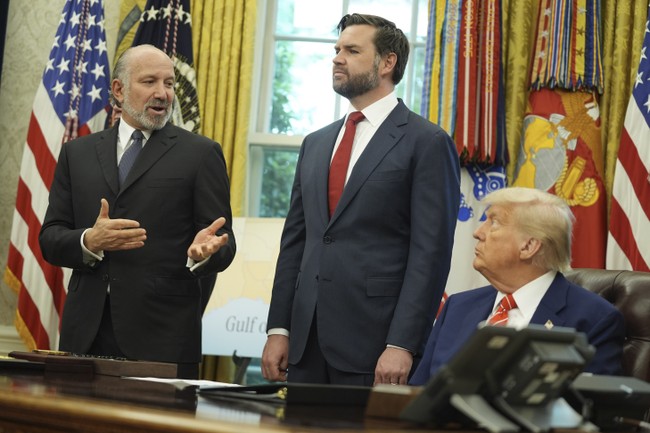
Beege’s excellent post on the financial bonanza that Trump’s tariffs have brought highlights one side of the story that the Pravda Media didn’t expect.
JP Morgan’s reversal of its prediction that Trump’s trade policy would usher in a recession tells the other side.
All the “best people” have missed the point of Trump’s moves to reshape world trade.
🚨JPMorgan just announced that they’re DITCHING their prediction that the United States will head into a 2025 recession.
The people who doubted the Golden Age of America have a lot of tweets to delete. 🇺🇸 pic.twitter.com/njqsTrv7Dq
— Townhall.com (@townhallcom) May 13, 2025
JP Morgan’s prediction that the tariffs would usher in a serious recession was not insane. Any economist will tell you that, all other things being equal, reducing the friction involved in people trading will reduce the efficiency of the market. Inefficient markets increase costs, reduce economic activity, and lead to lower growth.
All other things are never equal, and to add insult to injury, all the best people completely misunderstood Trump’s trade strategy. Now that the strategy is bearing fruit, economists are finding that it tastes pretty good.
Inflation slowed more than expected in April, despite tariff-related price pressures building
But we’re headed towards a recession said every Democrat I debated on CNN. Our economy is resilient and will continue to improve. https://t.co/HxymUK6a2C
— Shermichael Singleton (@MrShermichael) May 13, 2025
I have written a few times about the costs and benefits of Trump’s trade strategy, arguing that we won’t know whether it is good or bad until we see the results and get a solid grasp on what Trump is really aiming for. If Trump thought tariffs were an absolute good in themselves, the results would likely be bad. If Trump were using tariffs as part of a negotiation strategy, chances were good that the results would be good.
Trump added to the confusion about his ultimate goals, which was important to the negotiations. If he said, “I’m bluffing,” who would negotiate? He was following the Nixonian “madman” strategy–forcing the opponents to the table by making it clear that he was willing to go to the mat to get what he wanted. Imposing tariffs preemptively forced his opponents to the table.
As trade deals and negotiations have sped up, confidence in his strategy has skyrocketed. Stock traders are calming down, JP Morgan has reassessed their predictions of future economic growth, and Trump is once again proving his critics wrong.
Trump clearly believes that American dominance–economic, political, and military–has eroded because his predecessors have been too timid and too concerned about being liked to put America at an advantage. Trump doesn’t care who likes him; he cares about winning.
In matters of trade, this attitude has its obvious advantages–for all the talk about standing firm against Trump’s bullying, his opponents in negotiations really can’t afford to do so for any amount of time. The costs of holding out are asymmetric–yes, America will be hurt if other countries retaliate against us, but not nearly as much as their own economies will be hurt if they lose access to American markets.
America just has more leverage. Trump is using it.
If I were arguing on the side of the “norms” crowd–and I admit that some of their criticisms have merit–I would point out that America accepted asymmetrical trade deals in which our partners did better because it helped our country acquire soft power. To the extent that we tolerated unfair deals, we would acquire political capital to draw upon when we needed help.
The only problem with that theory is that our trading partners rarely return the favor. In fact, they seemed to believe that they had power over the US, not the other way around. Every time the US asks for the minimum–say, countries in NATO meeting their treaty obligations–we seem to get an answer that amounts to “Sod off.”
This is especially true of Europeans, who have a superiority complex despite the continent’s obvious economic, military, and political decline. The worse off the Europeans are, the more arrogant they have become. They have behaved like 30-year-old gamers living in their parents’ basements, complaining about how their parents just don’t understand them.
It shouldn’t shock anyone that Trump’s tough love approach angers them, but their anger is hardly evidence that Trump is wrong.
Our own elite has sided with the Europeans over America, and all those economists assumed that the criticisms against Trump were wrong. He was a madman, and America would pay the price.
The game isn’t over, but JP Morgan is signaling that Trump is likely to win. That nobody in the establishment believed this was possible just shows how small and uniform the bubble in which our elite exists is.












